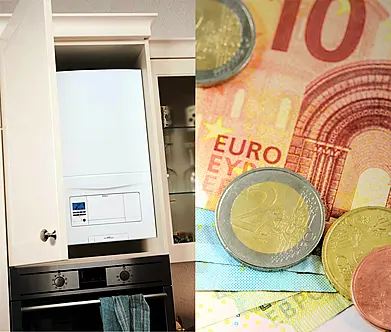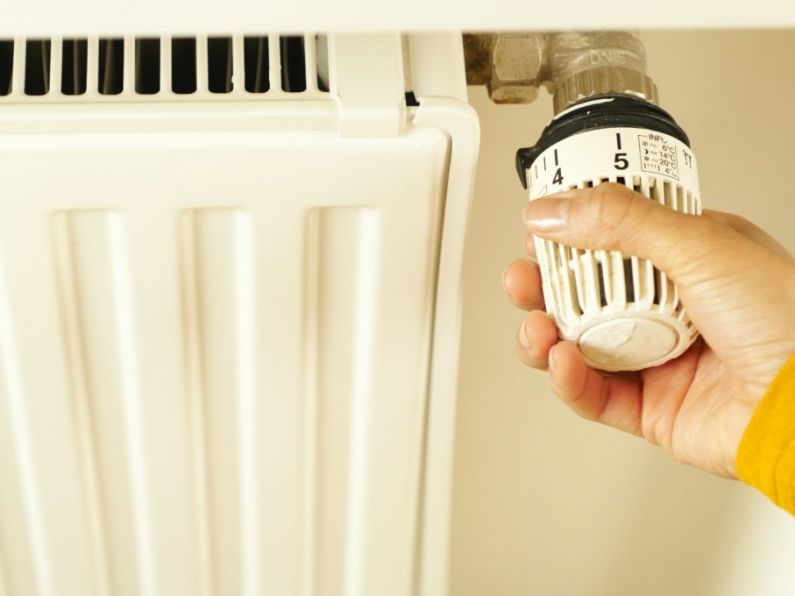With energy costs soaring we all need to be as vigilant as possible when it comes to our home heating, boilers are integral in most homes across the country but yours could be costing you hundreds of Eueo every year without you even realizing it.
Boiler expert Sean Richardson and the team at Complete Plumbing Solutions have compiled a list of boiler issues that may be seriously impacting your wallet.
“Inefficient Boilers are one of the biggest drains we come across on a daily basis – in 99% of cases these older units consume more energy, resulting in higher energy bills. On average, an inefficient boiler, be it oil or gas, can add €275-€300 per year to your energy bills. Improperly sized boilers, clogged air filters, and dirty burners are just a few of the factors that can seriously affect performance", he says.
Leaks, Leaks, Leaks
Sean says leaks in the boiler can cause water damage and waste energy, which can increase your energy bills by an average of around €200 per year. He says: "leaks can be caused by corrosion, damage to pipes, or a faulty pressure release valve. There are a number of telltale signs of a leak, obviously, if you can spot signs of water damage on the walls or floor near your boiler, it could indicate a leak.
"If you can hear a gurgling or banging when the boiler is running, this could be a sign of water in the system that should not be there whereas a high whistling or hissing sound can also indicate a leak.”

Thermostat Failure
Over time, the wires that connect the thermostat to the heating system can become damaged, leading to a fault. This can cause the boiler to work harder than necessary, consuming more energy and increasing your bills by up to €100 per year. A faulty thermostat can cause the boiler to turn on and off unnecessarily or worse still — not turn on at all.
Servicing is Key
Neglecting routine maintenance can result in a reduction in a massive drop-off in efficiency, which can increase energy bills by an average of €200 per year. Routine maintenance includes cleaning, checking for leaks, and making sure that all parts are functioning correctly.
This is hugely important as broken parts, like a faulty pump or valve, can be surprisingly expensive, ranging anywhere from €300-€1000 to repair, whereas a boiler service can be completed within one to two hours at a much more affordable cost. Sean recommends a service once every 12 months, if you have an older boiler, you’ll probably want to have an inspection at least twice a year.
Old Age can be Costly
As boilers age, they become less efficient due to wear and tear on the internal components, such as the heat exchanger. An older boiler may consume 5-10% more energy than a newer model, resulting in higher energy bills. Newer boilers use more advanced technology that is designed to improve efficiency.
For example, condensing boilers are up to 97% efficient, whereas older boilers may be only 60-70% efficient. You also have to factor insulation into the mix, older boilers generally are not very well insulated whereas newer options on the market don’t allow heat to escape as easily, this can give you energy savings of around 20% in the long run. Upgrading your boiler can be expensive but older units could be adding an extra €300 onto your bills per annum even when they are running without any issues, they just aren’t as efficient as modern units. With the older models, you’re also running the risk of part failures, which can leave you with huge repair bills.
As well as being relatively cost-inefficient, older boilers can also be quite dangerous if not regularly maintained, says Sean.
“There’s also an element of danger there that shouldn’t be ignored when it comes to the older units. Older boilers that have not been properly maintained or have worn parts can emit dangerous levels of carbon monoxide", he says. "This is a toxic gas that can cause illness or even death if it is not detected and addressed promptly. As we touched on earlier, a lot of these older boilers aren’t properly insulated which causes them to be prone to overheating – this increases the risk of fire in the home and can be particularly dangerous if the boiler is located in a small, enclosed space.”






